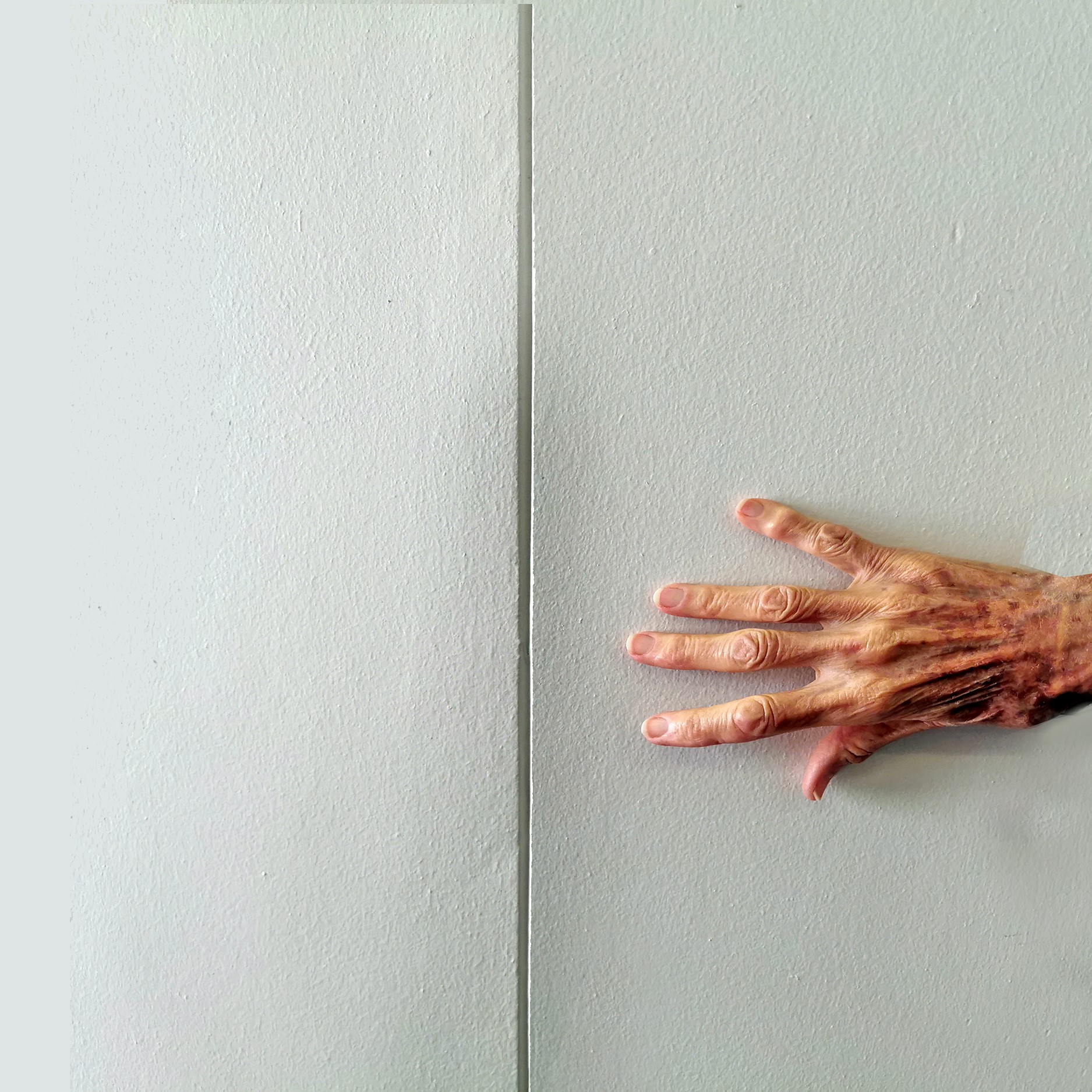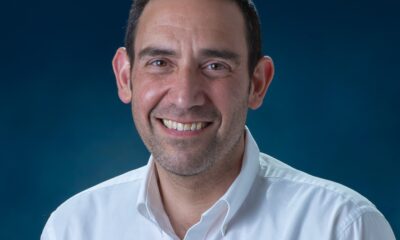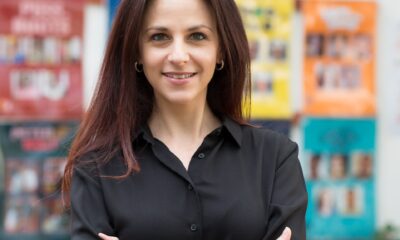
Community

Home and heart – how our elderly are coping
Published
3 years agoon
By
VariousAs our senior citizens were the first to get vaccinated and have been isolated more than most because of comorbidities, the SA Jewish Report asked a select few to write about their experience of COVID-19.
Lionel Slier
You feel vulnerable at this age, and every time you cough or sneeze, you fear that this is the start of it. But I have been told over the phone that one of the signs of having COVID-19 is that you lose your sense of taste. I can still taste a cigarette.
I was affected by the Spanish flu of 1929, which took place in north east Poland and Belarus. My mother, who was born there, was orphaned by the flu, and brought out to South Africa by Isaac Ochberg as one of the Arcadia orphans, so whenever I hear the words “Spanish flu”, it resonates with me. I don’t think history is repeating itself, but it could be.
My biggest fear is that COVID-19 will bring me to the end of the road. I try to follow instructions like wearing a mask and not going to heavily public places or assemblies. It’s itchy to wear a mask, with a hint of forthcoming suffocation. I must admit, it hasn’t affected my public life to any great measure. I hardly go to the cinema now, but I seldom did it anyway. The same for theatre and concerts. But I do miss it. I miss restaurants.
COVID-19 has influenced our behaviour. Whether it returns to what it was, we can’t yet say. What will be, will be.
Be careful and obey the rules. The future is in your hands, or rather your chest. Keep your distance.
- Lionel is a retired Johannesburg journalist who wrote for the Jerusalem Post, Jerusalem Report, and SA Jewish Report.
Barbara Schneider
At the beginning of June 2021, my brother and sister-in-law, Simon and Maxine Schneider, passed away within hours of each other after contracting COVID-19. You can imagine how devastated the family is. Their seven grandchildren and their children, Cindy Silberg, Hayley Kissos, and Stacey Barnett will never get over or understand it. Neither will I or Maxine’s sister, Avril Epstein.
My social worker, Irene, arranged for my children, Glenda Sauer and Lance Schneider (my third child lives in the United Kingdom), to break the news to me, and she was so well prepared. Sugar water, tissues, new masks, etc. She has also come to see me many times. An amazing woman. Sister Selina and her staff come to check on me every couple of hours, day or night. Unbelievable! The waitrons knock on my door every time they pass my room to ask if I need anything and to give me lots of support. Zama, my cleaning lady, has sat on the floor and cried with me every day. The residents have been so supportive. It’s amazing how much they care. I would like to know if there is anywhere else in the world in which such care, compassion, comfort, and support is given to people not just in times of need, but always. I don’t think so.
This is my family’s COVID-19 history. All are now fully recovered. In March 2020, my daughter and her husband, Bob; in November 2020, my daughter’s partner, Adrian Levi; in mid-May 2021, my son Lance, his wife Lynssey, and my nephew, Yoav Kissos, as well as my grandson, Adam Sauer. It has been one of the worst periods of my life.
To know that my children and grandchildren are sick and I can’t see or help them has been devastating. I feel completely useless and helpless. When stressed, I don’t eat or sleep. I become moody and a recluse, not wanting to see or speak to anyone.
One of the children opened a family chat on WhatsApp, which made contact much easier. But like any mother, the spoken word tells far more than the written word. I can tell so much by their voices and, thank G-d, the voices are good. I’m slowly becoming normal again, but being locked down in our rooms isn’t helping, although I know it’s for our own good.
To be the matriarch of the Schneider family, and not be with my nieces when their parents were taken has made me feel inadequate and sad. Thank you to everyone at Sandringham Gardens who helped me through this very difficult time. I still worry about the kids – whether they’re at work or out shopping. So please, anyone out there who is going through this, know that my thoughts and prayers are with you.
- Barbara is a resident at Sandringham Gardens.
Rosaly Katz
My name is Rosaly Katz. I have an older sister, Ruth Kur, who also resides at Sandringham Gardens. I have a brother, Theo Isaacson, who lives in Sydenham. I have a daughter, Fiona, who lives in Germiston.
Last year, just before winter set in, I was diagnosed with COVID-19. I had no signs of the virus. The nurse came to my room, and said I had tested positive. I packed my clothes, got as far as the hospital door at Sandringham Gardens, and passed out.
I remember the nurses came around with meals. I asked if it was breakfast, and they said, “No it’s supper time.” Whatever happened to the day? It was confusing not to know what day it was or if it was breakfast, lunch, or dinner.
I was out of things for quite some time. The worst was not to be able to see my sister, brother, daughter, and the rest of my family.
I had the best care from Dr Price, who is a fantastic doctor and person, and who gave me the very best attention. Thanks to her and the nursing staff, I pulled through, because all thought I wouldn’t. When I asked for ice cream, Dr Price thought it was my last request, and went all out to see that I had enough ice cream to last me a very long time.
I don’t remember much of my time in the hospital. When I did eventually come around, I was very weak. My breathing wasn’t great. I was on oxygen, and couldn’t do anything for myself. I had to learn to walk with a walker, and the oxygen was my constant companion.
Thanks to Rabbi Jonathan Fox and everyone in our congregation, overseas family, friends, and strangers, who prayed for me, I pulled through. I woke one time, and Dr Price was trying to put a mask on my face. I kept pushing it away. Eventually, they brought an oxygen tank and put the oxygen through my nose. That I accepted. I have no idea what happened after that. I was on oxygen the whole time I was in hospital (three months). No-one thought I would ever be able to go back to my room – they thought I would need help. But, with the help of a walker and oxygen in my room, I was able to function on my own.
Today I don’t need a walker or oxygen. I’m back to who I was before. It’s all thanks to prayers, and Dr Price and the nurses who looked after me. I thank them all from the bottom of my heart.
- Rosaly is a resident at Sandringham Gardens.
Clara Taub
I’m Clara Taub. I have done many things in my life.
I contracted COVID-19 in July 2020. I couldn’t believe it. In the beginning, I wasn’t ill at all – that is, until the doctor told me my temperature was high and my saturation low. She organised for me to have a test and to go to hospital immediately. I was shell-shocked! Immediately! The ambulance arrived to take me, but it was the coldest night of the year, and I refused to go. They came back early the next morning and insisted as my test had come back positive.
I went into freeze-frame mode, and just went along with the process. I was whisked into a ward, into bed, with my buddy, Oxygene, and there I stayed for two and a half weeks.
All the doctors and nurses looked like space men, with their PPE (personal protective equipment) and masks on. Oh wow! Scary!
Bells were rung and whistles blown every hour on the hour – “sanitise, wash hands”. I could tell the time by this action. I would start at 07:00, and then count down from there – a game, yeah, I had found a game to play!
But what really supported me in this conflict were the three things I did every day, all day.
I kept my sense of humour. Viktor Frankl says, “Humour is another of the soul’s weapons in the fight for self-preservation.” I really tried to find humour in everything. The conversations I overheard [mainly out of context] were really very funny. My doctor visiting me in the middle of the night, looking like an insect hunter! Saying something like, “Hey, there’s one in here!” Cracked me up!
I said the Shema. I say it all the time.
I said Psalm 23, something I have always said when I’m troubled. “The Lord is my shepherd, I shall not want.”
These helped me, and I survived. But let me say that I’m afraid every day. It was horrid and scary. Even now, after being vaccinated, I’m afraid. My message is to be positive, and believe that Hashem will protect us. “Shema Israel, the Lord our G-d, the Lord is one”.
- Clara is a resident of Our Parents Home. She led in the field of drama, working as a teacher, textbook author, as well as writing poetry and story books.
Avrille Amler
I’m Avrille Amler. I have lived Our Parents Home for four and a half years. My favourite occupation is reading.
COVID-19 means that some of the people that I love have taken ill, but behatslacha, they have recovered. The memory of the anxious wait is still clear. Unfortunately, other friends and family haven’t been so blessed, and their loss hurts.
I have felt safe and protected since coming to live at Our Parents Home. Many in the crowd outside were people unknown to me. Unfortunately, these anonymous people have now got names and faces. I have shared some history with them, and they are no longer just numbers in daily reports.
Like most of us, I have never experienced these conditions before. We are battling with the lockdowns, although we understand how necessary they are. “Lockdown fatigue” isn’t an expression any longer, it’s a reality. We are really tired of it. We want to be able to go beyond our protective fence and walk freely around a shopping mall, or even just go into one shop and wander around. We want to be able to do our own thing.
Family and friends have been helpful in doing our shopping for us, but for me, writing a shopping list has now become an activity. Photographs have to be taken of the item required if it’s not a regular purchase. Likewise, exact sizes and quantities, colours, and shapes need to be listed and sometimes things aren’t always what you want them to be!
I find that participating in crosswords and quizzes is a fun way to keep myself occupied, and it’s a bonus to be rewarded with sweets and chocolates. Reading has always been one of my favourite occupations, and working with the books in the library on Friday mornings has become one of my favourite activities.
- Avrille is a resident of Our Parents Home. She worked for many years in the law and insurance fields, and now enjoys working in the library and excelling at quizzes
Brenda Solarsh
Although there’s a common response to living through the pandemic, we all have our own experience. Our lived response to what it means to manage a living nightmare is significant disappointment, pain on an emotional or physical level, isolation, anxiety, and anticipatory grief. The term “coronacoaster” sums it up so aptly. People talk of the “stuff of fairy tales”, this has been the “stuff of horror stories”.
We hear how we can turn our limitations into strengths. Perhaps, unwittingly, that’s what happened to me. As COVID-19 appeared, my family turned to me in great anxiety. I had battled cancer twice in my life, and many years later, a benign brain tumour. I have some other issues as well.
They were worried about my tendency to catch infections and not recover easily. A dear niece was particularly concerned about my vulnerability, having lost her mother – my sister – relatively recently. My GP strongly advised shielding, and so my lockdown, stay-at-home life began.
Thankfully, I haven’t been infected by COVID-19, but it has had a significant impact on my life.
Being so cautious and rarely going out has probably protected me. Possibly the person I became as a result of ill health, particularly my life threatening illness, shaped and strengthened me to face such a dramatically different lifestyle.
I learned that one can’t control everything. So, I respond to chaos or threat with calmness and pragmatism. Life has taught me that “this too shall pass”. My experiences have taught me that one can endure pain and discomfort.
Having faced my own mortality, I had no illusions about the nature of the virus. I stayed home, learned to order everything online, and on the few occasions I had to venture out, I followed all PPE requirements, doing whatever was within my control.
I make the best of my situation. I have enriched my life by doing online courses and watching documentaries and films that are uplifting and interesting. I read and write when my mood dictates, and rest and relax when I need to. I learned how to care for my mental health during a traumatic time, so I asked for and shared support, friendship, and humour with friends and neighbours. I deeply appreciate these connections.
Home has been best because the Chev has done whatever possible for all its residents.
I owe an enormous debt of gratitude to my well-known pet, Georgie, the black pug – the best vaccine invented.
- Brenda is a resident of Golden Acres. She has a Masters in social work, and a 45-year career in the field, half of which she spent at the Chev.










